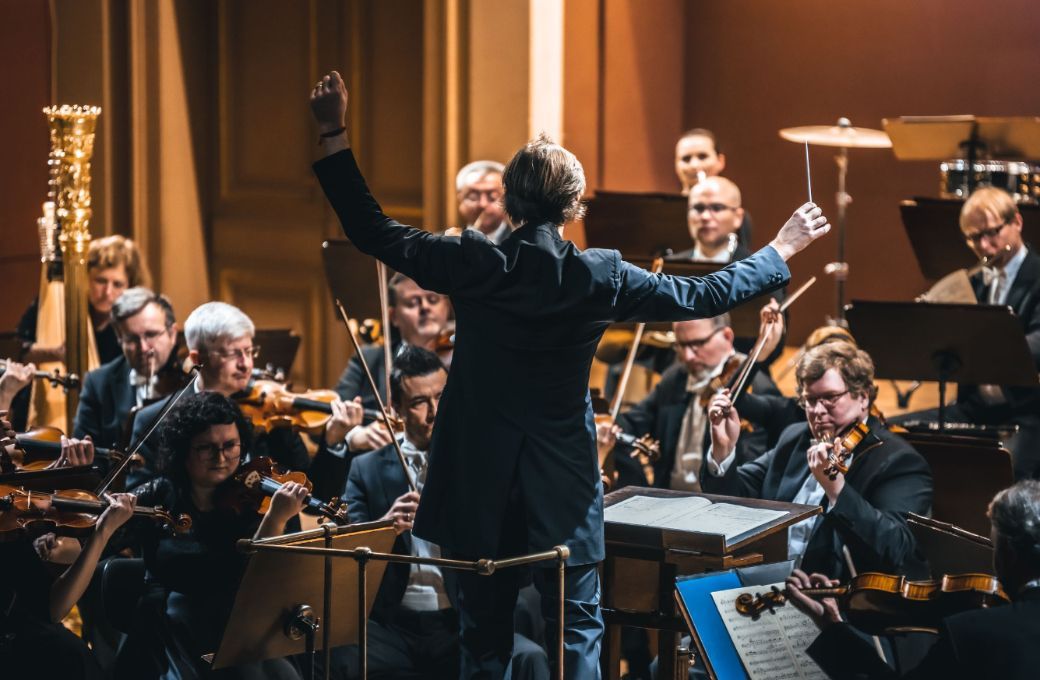It was a family affair at the Rudolfinum, a showcase for Czech music, folklore and the seemingly endless flow of first-rate homegrown talent. Principal Guest Conductor Tomáš Netopil was on the podium leading the Czech Philharmonic in a program of native composers. Tomáš Ille contributed a fresh suite from Janáček’s Makropulos Affair, violin phenomenon Josef Špaček switched to viola for Martinů’s Rhapsody-Concerto, and Vítězslav Novák, a pupil of Dvořák, offered a lively, lyrical portrait of a day in the Moravian countryside. Every family reunion should be this good.
Janáček’s penultimate opera was based on the eponymous play by Czech writer Karel Čapek and, nearly a century later, pulling a suite from it remains a formidable task. Janáček was writing through-composed musical dramas by that point and, aside from the opening prelude, there is not a single instrumental interlude in his Makropulos. Ille focused instead on phrases and motifs that he expanded into contrasting sections evoking the opera’s evolving moods, from sunny optimism to dark despair. Netopil showed superb control of the material, opening with bright, transparent strings and weaving in sharp details and vibrant colors as the piece grew in complexity. The orchestration eventually gets unwieldy, cluttering what was an otherwise nimble performance characterized by Netopil’s skills as an opera conductor – pacing, precision and expression so rich that actual vocals would have been redundant.
The interpretation of Martinů’s Rhapsody-Concerto was equally eloquent, thanks in part to the instrument Špaček brought, a 1767 viola made by “Dutch Stradivari,” Johannes Theodor Cuypers. It has a voice of its own, deep and golden, sentimental yet strong. All of these qualities came to the fore in Špaček’s hands, with intricate runs flowing like water and soulful solos bathed in a warm glow. Employing a lot of vibrato, he gave the piece an emotional underpinning without sacrificing any technical finesse. And Špaček and Netopil were of one mind about Martinů’s freewheeling fantasy, not so much as glancing at each other as they crafted a seamless, unified sound. When they raised clasped hands afterward, it was more a triumph for the music than the performers.
Špaček added his own coda with an encore drawn from Dvořák’s Terzetto in C major, played with two of the orchestra’s violinists. When he’s not in the solo spotlight Špaček is an occasional concertmaster with the orchestra, and the natural fit and chemistry with his colleagues added heartwarming depth to the piece. For that matter, so did the viola, which added such full lower tones that the sound was more like a string quartet than a trio.

Novák’s gift for transforming folk melodies into orchestral romances is clear in his Moravian-Slovak Suite, especially as rendered by Netopil, for whom the piece is a personal favorite. In five movements, Novák paints vivid pictures of a day that begins in church (complete with an organ) and ends in a hushed, glimmering twilight. The character that Netopil gave each of the scenes was remarkable: a lighter-than-air quality in the church, joy amid the animated dancing of children, a refined touch in the intimacies of lovers, and symphonic dimensions for a boisterous village band. In the finale, you could almost see the sun setting and fireflies sparkling. The woodwinds and horns stood out in a narrative that, once again, needed no words. The music said it all.
This performance was more than just a deep dive into Czech culture. After a difficult period in the early 2000s, the Czech Philharmonic has re-established itself as a world-class ensemble. Both Netopil and Špaček are in demand throughout Europe, and beyond, as guest artists. Though it had special resonance at the Rudolfinum, any hall in the world would have been happy to host that concert.


